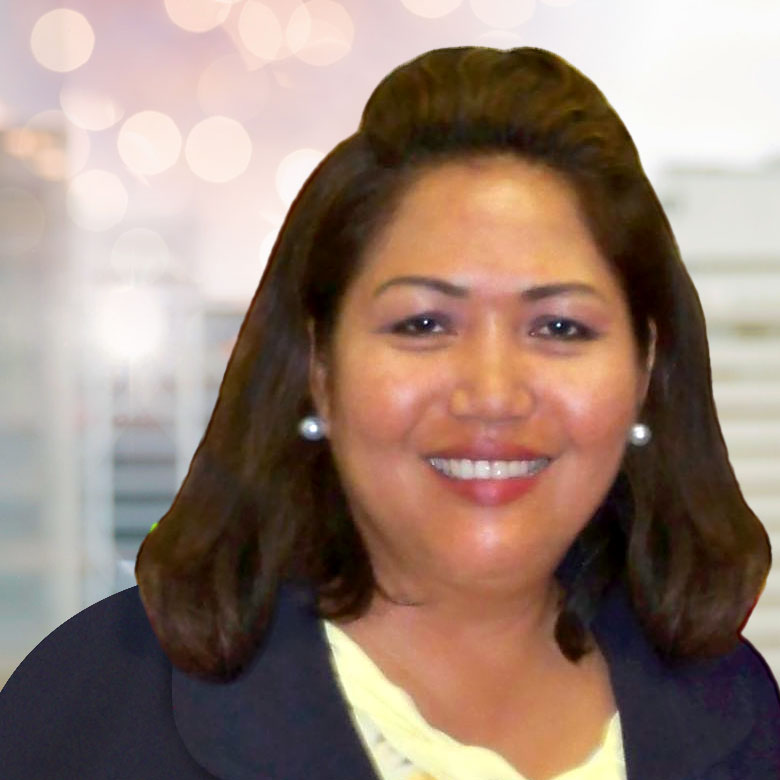10 Best Tips To Increase Your Chances of Hiring In-Home Caregivers In Your Area
By: Rosemarie Tamunday Casanova — RN, BSN, MHA

It is every home care agency owner's dream, to have a world where caregiver turnover is more or less zero percent, and where you have qualified caregivers lining up at the door single-file to give you their job applications.
Unfortunately however, this quite utopian vision of home care is hardly likely to be the case anytime soon. The process of recruiting and hiring Caregivers across the United States, is one of the greatest, if not the most challenging feats that most home care agencies face.
Home Care agencies continue to identify shortage of caregivers as their top threat according to the Home Care Benchmarking Study, placing them far above other threats that include the increasing competition, and the rising minimum wages.
With the current growth of the senior care industry, Caregivers are now allowed to make their choice of which agencies to work for.

Also, having a strong job seeker’s market translates to you having to compete for employees as well, with often bigger companies.
Unfortunately, this problem is not going away anytime soon as according to The US Census Bureau estimates, by the year 2030, the elderly population is expected to outnumber that of children for the first time in the history of the United States —which would foreshadow a great future need for more caregivers.
The good news is, there is a lot that you can do. Successful recruitment of caregivers is not so much about doing one big thing extremely well, but more about looking at the various aspects of the caregiver hiring process, and understanding how they all fit in together, as well as doing what can be done in order to create a competitive advantage for you within each of these pieces of the overall process.
These are some of the things you can do to help you in hiring more caregivers, better caregivers, and more importantly, caregivers who will stick around for reasonable while.
10 BEST PRACTICES FOR HIRING CAREGIVERS FOR IN HOME CARE

1. Ask These 2 Important Questions Before You Start Hiring:
A. Are your Caregivers viewed as assets or commodities?
This is important because having this mindset affects the amount of effort and time you put into the hiring process.
The most successful and thriving home care agencies are the ones which see their caregivers as being indispensable assets, and also treat them in like manner.
B. Does Your Job Posting Grab the attention of the Right Applicants well?
Drafting the right job postings is an essential aspect of attracting the right caregivers.
They are typically your very first contact with the Caregivers and therefore, should be used properly to filter out unwanted Caregivers, at the same time acting as a beacon to the sort of caregivers you would want.
2. Your Hiring Criteria Should Not Be Screening Out Awesome Applicants
Your agency may have arbitrary hiring criteria which rules out many otherwise qualified caregivers even before they apply. For instance, mandating in your job postings that the applicants have certifications in CPR before they can apply.
Do not list unnecessary qualifications that may cause potential great caregivers to pass over your agency even before you have the option to make the choice of hiring them or not.
3. Draft A Clear & Concise Job Description
It is important to write a clear job description so as to appeal to candidates who are willing and capable of doing what is necessary to care for your senior adult.
In order to achieve this, think carefully through your senior adult’s needs, so that you can include all the tasks you would expect them to do. It could be of help to walk through a whole week of care mentally, step by step.
Having a clear and concise job description would also be of help to you in figuring out the number of hours of care needed, the amount of flexibility needed, as well as how much to pay.
4. Have Multiple Job Interviews And A Period Of Trial
Conducting a one-off Interview for a potential caregiver(s) may not give you all the information you need to make a good decision.
Having 3 interviews may serve you better in getting a more complete picture.
For example:
- Conduct a brief screening interview on the phone to ensure that basic requirements are met.
- Conduct an in-person interview to allow you meet the candidates who are successful with the phone interview.
- Conduct an interview in which the top one or two candidates meet with the senior adult.
Bear in mind that it is one thing to conduct an interview, and another is meeting real-life expectations. After making your choice of a great caregiver, it is advisable to work out a period of trial before making the job a permanent one.
This gives you a chance to observe how well they get along on the job, and also how they handle the tasks of caregiving.
In addition, it gives the caregiver the opportunity to ensure that the job meets their own expectations.

5. Do Not Hesitate To Ask As Many Questions As You Come Up With During The Interview
You asking these questions at the interview would help you in finding someone who is trustworthy, responsible, and compassionate.
Do not be afraid to enquire about their past experiences, or even to ask about what they would do in certain peculiar situations that may often happen with elderly individuals.
For instance, for senior adults who have dementia and incontinence, you may want to ask what they would do in cases where they (senior) resist the Caregiver's attempts to remove their briefs and get them cleaned up.
You could also ask how they would handle a situation whereby a senior adult refuses to take their medication.
6. Do A Quality Check Of Their References
However impressed you are with the person(s) you have interviewed, it is still advisable to conduct background checks and place a call to all of their references.
Find out how the person performed while on the job. Would they would hire that person again? And of course, do they recommend the person for your job?
Remember also, to check for any criminal records in every state that the person has lived in or been employed.
7. Maintain Transparency Regarding The Difficulties Associated With The Job And Pay Expectations.
Do not be misleading about the job schedule, or pay. Don't sugarcoat the job details, especially for the work hours, the assignments, or pay expectations. It would likely cause more problems and stress going forward.
The major benefit of being upfront is that: caregivers that aren’t compatible with the job will be naturally weeded out, leaving you with caregivers who start off with a full understanding of the positive, as well as negative aspects of the job, and are excited about it.
8. Be Flexible About Pay Especially If You Are Hiring Independently
Being flexible about pay gives you a chance to interview the best of candidates. In your job posting, mention that the hourly rate is dependent on the caregiver's experience.
This would help in getting responses from more experienced candidates – and the extra experience is often worth the slightly higher rate.
Consider also, the going rate in your location. If your pay offer is a lot less than what is obtainable on the average, you'd more likely attract applicants who are less likely to possess the care skills needed.
To have an idea of the hourly rates in the area, take a look at the job postings for similar caregiving jobs, to get a sense of what the average rates are.
9. Payment Should Be Legal
You may try to save some money by making “under the table” cash payments to your hired caregivers, so as to skip employment taxes.
However, this may cost you far more in the long run if you get audited by the IRS, not to mention, land you in a lot of trouble that exceeds any potential savings.
10. An Employment Contract Should Be Signed.
It is a vital aspect of caregiver hiring to create an employment contract for in-home help.
This does not need to be complicated. The essence of this document is to lay out clearly, the details of your discussion.
You and the hired caregiver both sign the document as evidence of clarity of the job expectations, as well as mutual agreement to the stated terms.
This should include:
- The job description in detail
- Number of hours / schedule
- Pay rate & pay periods
- Any other thing which has been agreed upon at the interview process.



